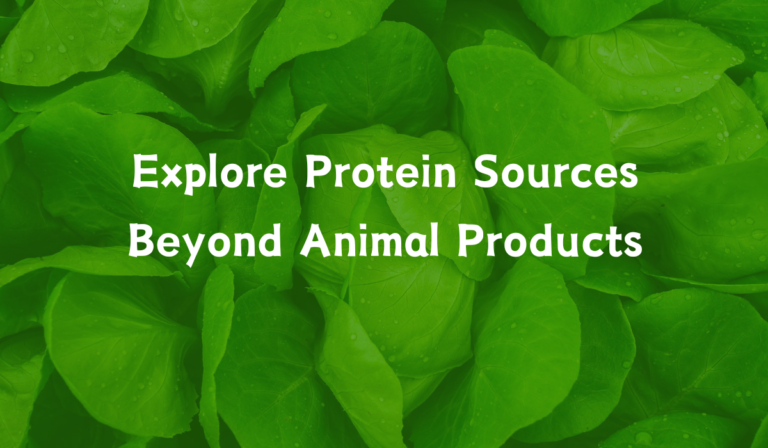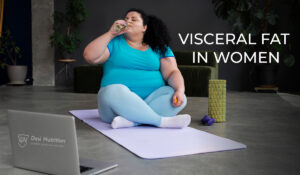Let’s talk about plant-based protein sources. Since childhood, we have been told how important it is to eat our greens and fruits, even if we do not like the texture of the prepared food or how it tastes. But as we grow older we realize how crucial it actually is to have our veggies and fruits in our diets.

Eating good food is essential for the functioning of our body. Our body produces its amino acids that are the building block of the body. Amino acids help build muscles, bones, hair, skin and every other body cell. However, a human body is not capable of producing enough amino acids because it has other functions as well so we can survive. This is where food comes in.

We get our essential minerals and vitamins mostly from outside. Plant and animal-based diets help us get the essential nutrients that keep our body functioning efficiently. Animal sources are the best way of protein intake. But not everyone is keen on including animal products in their diet and it is totally okay!
You don’t have to rely on animal products in your diet to fulfill your protein requirements. Though meat products have high protein, that doesn’t mean a plant-based diet won’t give you enough protein that will help your body function.
Vegetarians can maintain a healthy diet by incorporating plant-based sources in their meals. Though plant-based food is not considered complete because they are short of one or two building blocks. But by adding various plant-based sources of proteins you can get the required protein without adding meat to your diet plans.
Other alternatives
One more thing, adding protein bars, powders, and shakes is not a necessity if you are looking to maintain a healthy lifestyle and not just build your body for that upcoming bodybuilding competition.
You can get your meals customized by dieticians if you are vegetarian and are confused about what to eat and how to include the food products in your diet. A dietician can help you with food management for your healthy lifestyle.
If you are planning to reduce weight and think that protein intake should be minimized, you will be amazed to know that protein plays a crucial role in weight loss. You need to understand protein’s role in weight loss so you can keep track of what you eat while on the journey of losing those extra pounds.
Now first let’s see what food products you can add to your diet that will fulfill your requirement of protein without consuming meat and related products.
Greek Yogurt:

- Yogurt for years has been an essential in diet. It has a creamy texture that adds to the flavor of your meal. Greek yogurt is a type of yogurt that goes through the process of straining where whey is strained out of it giving it a creamy texture.
- Greek yogurt contains iodine that supports a strong immune system. It contains other minerals and vitamins like vitamin A, B12, calcium, potassium, and phosphorus.
- A container containing 156 grams of Greek yogurt has 92 calories, 0.265 g of fat, and 56.2 milligrams of sodium. It has minimal amounts of sugar accounting for 5.1 grams and 23.6 grams of choline that boosts brain health.
- Apart from 16.1 grams of protein, 156 grams of Greek yogurt also contains 111 milligrams of calcium, and 220 milligrams of potassium.
- Greek yogurt is high in calcium and vitamin B (B12 to be specific) making it a good substitute for other dairy products. Calcium is a great contributor to bone health. Not only this but it also helps in blood clotting, muscle contracting, and heart regulation. Vitamin B12 is associated with brain health contributing to the working and development of the brain. It helps form red blood cells as well.
- Greek yogurt contributes to providing probiotic intake to maintain blood pressure and counteract sodium. It helps aid digestive health by enhancing its ability to handle a wide variety of food because of its probiotic nature.
- Greek yogurt can be an excellent choice for breakfast. You can eat it with fruits or use it as a base for smoothies. You can also try it with honey, or use it as a substitute for sour cream. Greek yogurt could be a good source of dips as well.
Soy and soy products:

Vegetarians can have multiple options as protein sources one of them being soy or soy products. Soy is considered to be the best substitute for animal protein because it has all the nine essential amino acids that a body requires to grow and develop. That is why it is a popular choice among vegetarians as well as vegans.
Soya chunks:
Soya chunks can be a rich source of protein and an excellent choice to experiment with in cooking various recipes. They are the by-products of soybean oil. Soya chunks could be made into delicious dishes that you can offer to a vegetarian.
Tempeh:
The other soy product that could be a good choice for you to add to your meals is tempeh. Tempeh is made from fermented soybeans and is denser than tofu. It is a traditional food in Indonesia that has a dry, firm, and chewy texture. Tempeh has an all-rounder nutritional profile containing calories, protein, fat, sodium, iron, calcium, riboflavin, niacin, magnesium, phosphorus, and manganese. Including tempeh in your diet plan as an independent meal would provide you with multiple health benefits.
Soybeans:
- Members of the legume family, soybeans have been a staple Asian food for ages. It is because of its impressive nutritional profile making soybeans are high in fiber, and protein along with being a good source of omega-3 fatty acids.
- Soybeans are lactose and cholesterol-free making it a good choice for people that face dietary issues because they are lactose intolerant. Soya beans are also a source of antioxidants that help neutralize free radicals in our bodies.
- Soybeans contain phytoestrogens which are hormone-like substances. They mimic the action of the hormone estrogen providing health benefits, especially to women. Soybeans have multiple health benefits which is why it is considered a popular food among people.
- Soybeans-rich food will reduce the risk of cardiovascular diseases because it has low levels of cholesterol which is a major factor for heart strokes and coronary heart diseases. Consuming soybeans also contributes to lower blood pressure, improved blood health, prevention against some cancers, and many more.
- Soy products are a complete source of protein that could be consumed as a whole meal. One such soy product is tofu.
Tofu:
- A popular choice among vegans, tofu has gained massive popularity for years now. Tofu is made of soya milk. Tofu is a magic food that can be cooked in various meals. You can experiment with tofu and make numerous healthy and delicious meals out of it.
- Tofu is a relatively highly nutritious plant-based food product with fewer calories. It has health benefits as well as it prevents the risk of heart disease, and some cancers, especially breast cancer. It also reduces the risk of getting diabetes.
- Other than that your bone health will be improved, and your brain will function efficiently. Tofu is a great source of food for pregnant women.
- If you are looking for recipes for tofu, you can use it in salads, you can make gravy tofu, or add it to your pasta. Tofu pancakes are also a good option for your breakfast.
Quinoa:

- Quinoa is a 5000-year-old edible seed that can be cooked in both salty and sweet flavors. Quinoa is gluten-free and contains various nutrients like protein, fiber, folate, and antioxidants. It comes in various colors including red, black, and white.
- The edible seed that is pronounced as keen-wah is packed with multiple nutrients and not just protein. Though it has high protein content, it also contains various essential vitamins, and minerals that are crucial for the human body.
- If you are consuming quinoa in your diet plan, you will be consuming not only protein but calories, fat, carbs, fiber, folate, vitamin B6, vitamin E, copper, iron, zinc, manganese, magnesium, potassium and phosphorus.
- Including quinoa in your diet will also help you with your metabolic health by reducing LDL cholesterol and total cholesterol.
- Incorporating quinoa into your diet is easy as you can cook it in simple ways and eat it as breakfast or as complementary food in your lunch. You can make it sweet or salty as per your preference.
Nuts and seeds:

Nuts and seeds include almonds, hazelnuts, walnuts, cashews, chia seeds, pumpkin seeds, sunflower seeds, and peanuts. Seeds come from vegetables like pumpkin seeds come from pumpkins, sunflower seeds, sunflowers, and so on. On the other hand, nuts are the seeds of plants and both are a great source of protein.
No matter what nut and seed you choose to add to your diet, one thing is for sure you will not only be consuming protein but other essential fats, minerals, and vitamins as well. Nuts and seeds cannot be eaten as a whole meal, you have to incorporate them into your diet with mindful portions because they are high in fat and calories as well.
Pumpkin seeds are little edible seeds that can be carried in your pocket and you can have it as a snack at your workplace or during school/college breaks. Rich in not only protein but zinc and iron as well, pumpkin seeds can be used as a roasted snack as well and included in your daily salad.
Chickpeas:
Chickpeas are a source of protein as well as fiber. People mostly use it as hummus but there are other ways to cook it. You can make chickpea curry and eat it with rice. It is one of the most popular foods on the Indian continent. You can roast chickpeas and make a crunchy snack out of it. Chickpea salad is also a healthy option to incorporate a healthy eating option.
Almonds:
Another snack, another pocket! Almonds are rich in calcium and magnesium. You can soak them overnight and eat them in the morning removing their layer. Eating a few almonds in the morning is beneficial for you as it offers numerous health benefits.
Sunflower seeds:
Technically sunflower seeds are the fruits of sunflower plants that are high in vitamin E, selenium, phenolic acids, and flavonoids. Pumpkin seeds are a great option for diabetic people to include in their diets.
Pistachios:
Pistachios are delicious nuts with a sweet and salty flavor to it. It has low fat and calorie content with a high level of potassium that helps people activate various cells and nerve systems. Pistachios have 20% protein which is a higher calorie-to-protein ratio than other nuts. This seed, which is usually considered a nut, can give you multiple health benefits.
Pistachios are a good choice to add to your diet because they help to promote healthy gut bacteria, reducing the risk of gut-related issues. You will have healthy blood sugar levels and low cholesterol levels. Pistachios also promote good eye health.
Cashews:
You can also include cashews in your diet because of its high nutritional value and various health advantages. It is a good source of nutrients for people with diabetes. It helps control cholesterol, skin problems and other related issues.
Beans and legumes:

Beans and legumes are a popular choice among vegetarians because they make your whole meal rich with nutrients. Lentils are a great source of nutrition for people and the best thing about beans and legumes is the various ways of cooking and serving them.
You can prepare meals like rajmah-chawal (kidney beans and rice), chane-chawal (chickpeas and rice), and dal-chawal (lentils and rice) (these are all Indian staple dishes and rich in protein and other nutrients).
Beans and legumes will help you with improved gut health, a healthy heart, and reduced blood sugar levels.
Why does the human body need protein?
Fun fact: the word protein comes from the Greek word ‘protos’ meaning ‘first’.
This shows how important protein is for the human body as it is the top most essential nutrition that a human body requires. The amount of a nutrient that our body needs is called Recommended Dietary Allowance (RDA) which suggests around 0.8 grams of protein per kilogram is the modest amount of protein intake for a human body. The requirement changes accordingly.
Body’s protein requirement
The protein intake requirement for a girl of 10-13 years would be different from that of a boy of the same age. Similarly, it will be different for an adult man and a pregnant woman. After 40 years of age, your protein requirement will increase because you will start developing a condition called sarcopenia, where your body starts losing muscle mass.
So, if protein is such an essential nutrient, what does it do exactly?
We have discussed that protein is the building block of the human body. All thanks to protein if your muscles are functioning properly and you have hair on your body.
Since protein is the building block of the body you should know how essential it is for children to eat protein-rich food that will be a major contributor to their growth. It gives shape to organs and makes them capable of working as they should.
Protein helps in body growth and development including bone and muscle development. Protein also contributes to fixing the wear and tear of the body tissues and cells. Your hair, skin, and nails have a protective layer which is the result of protein in your body.
If you do not get sick frequently, thank your protein sources because protein helps build immunity because the antibodies produced by proteins protect against the host of infections.
Conclusion:
Just because you do not eat meat and related products doesn’t mean you are protein deficient. Yes, meat products have more protein but it does not mean a plant-based diet won’t match the protein requirements for your body.
Keep in mind to add food products in your diet that complement your body. Consult a dietician for a comprehensive diet plan that would help you achieve your fitness goals.




